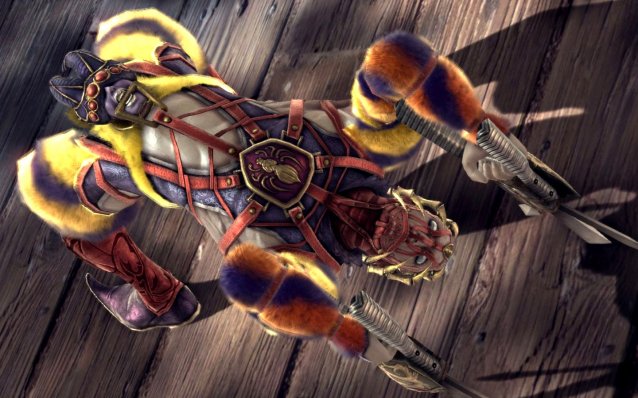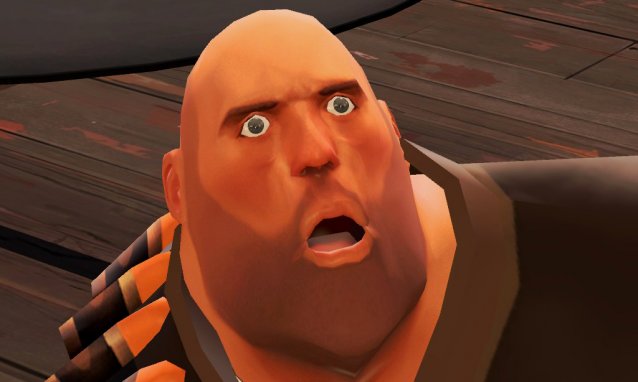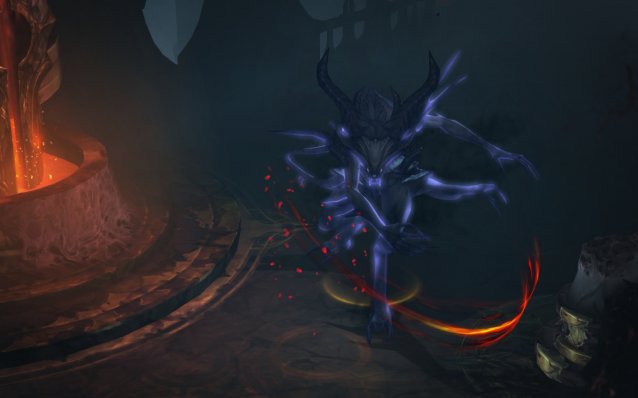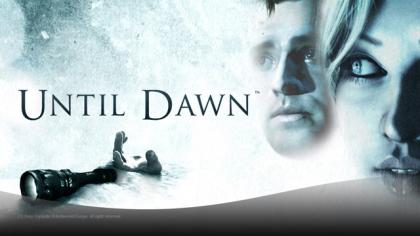


“How absurd men are! They never use the liberties they have, they demand those they do not have. They have freedom of thought, they demand freedom of speech.”
– EA’s Soren Kierkegaard on the gaming industry.
Prophetic though these words may seem, when uttered in 2004 Kierkegaard would never have placed them within the context of gender representation. Present throughout the industry’s history since the very beginning, unequal representation of the sexes had until very recently been a widely accepted and agreeable phenomenon. Barring only a thankfully minor segment of upset dissidents, everybody was perfectly OK with the gender spread. Videogames were fun, and nobody ever questioned why there were next to no male protagonists in the entire medium.
But then those blasted dissenters found a voice. Now they threaten to ruin everything. Games journalism has been turned topsy turvy with these men constantly rocking the boat, madly demanding things like having men in videogames and pointing out “so-called” inequalities in the world.
In their crusades against the industry they have forgotten The Rules Of Videogames, the sacred commandments engraved in studio walls since time immemorial. They have forgotten The Reasons, and so they have strayed from the path of Truth and Real Worldedness. From dev to dev the world over, these industry guidelines have served us well since decades passed. In these shaky times, it is perhaps appropriate to recount to ourselves why a male protagonist is simply impossible in videogames, and pray that this reminder will usher dissent back to the hell from which it spawned.

1. Since males are so confusing, writing a male protagonist requires skill and finesse that goes beyond the present ability of writers in the industry. If games start introducing male player-characters, they’ll only be dreadful. Since the gaming industry accepts nothing short of perfection in narrative, it’s best to have absolutely no male protagonists than to work on it and get better.
2. For fear of mucking it up, only games with the best track records can have a male protagonist. Unfortunately, a game without a male protagonist is inherently short of being the best because it lacks gender equality. Therefore, it should not have a male protagonist, since they would only muck it up.
3. You would have to implement unruly testicle physics which is currently very tough to design for. All that flopping about when a male is physically active can make for very inappropriate content. On that note, randomly generated erections test negatively with focus groups, and nobody can figure out how to implement ‘the character accidentally sitting on himself’ as a game mechanic.

4. Men are big and heavy because of muscles, inhibiting their ability to jump and move. Leaner, lighter genders such as women are far more appropriate for games pertaining to such activities.
5. Their hitboxes would be too big - you’d have to redesign the entire game to accommodate it.
6. Males are a notoriously diverse bunch – it’s highly unlikely that any one male character will sit perfectly well with every male player. Since someone probably won’t like him, this places developers in a lose/lose situation avoidable only by abstaining entirely. That’s why every videogame cast consists solely of inoffensive abstracted geometry.
7. My mate Dave doesn’t really care so the issue mustn’t be important.
8. The onus is on men to make male characters. Since there are so few men in the industry, a lack of male protagonists is a good thing because it shows fair distribution of responsibility.
9. Surely the people wanting male leads can simply abandon their careers and become game devs specialized in designing for such a niche market. This has the added benefit of their complaints about the status quo being ushered away from where we can hear them.

10. Males are typically busy at being politicians and talking about snooker, so they generally do not fall within the contexts of most videogame settings. Such fun-hating character traits seldom lend themselves well to home entertainment. Most games, meanwhile, center around flighty adventures that ultimately save the world, for which female protagonists are far more realistic and believable, given their innate romanticism.
11. Very few people are interested in games centring on prostate cancer, sitting in front of the fireplace reading a newspaper, and cutting the turf. While a niche does exist for “men’s issues” games, they are not remotely applicable to the mass market.
12. Pokemon, Mario, Legend of Zelda, Tetris, Pac-Man, Minecraft, Sonic the Hedgehog – all bubbly, bouncy, colourful and wildly popular franchises within the industry. Men just aren’t interested in that sort of thing. That’s why all these games have female leads.
13. There was a game in 2004 with a male protagonist but you didn’t buy it. Given the subsequent drought, you only have yourselves to blame.

14. If we introduce male protagonists, then we’ll have to start including other minorities. But there are too many minorities!
15. It’s unfair to put male protagonists ahead of female characters in games for such an exoteric reason. By not ignoring them anymore, it’s tantamount to special treatment. Better off leaving female protagonists with 99% of the pie, which isn’t special treatment and is totally fair for everyone involved.
16. Publishers know that games with male protagonists won’t sell well so they balk at marketing them. On a related note, games with male protagonists aren’t marketable so naturally they don’t sell well.
17. So few games have male protagonists because so little of every article of entertainment and historical account has male protagonists. If male protagonists want to be in more games, first they will have to be in more of film, comics, literature, and history, so that developers will have something to work with.
18. By introducing male leads into the medium, we highlight a differentiation of gender between men and women. In order to overcome the artificial constraints of gender, it is best not to bring the matter to any light whatsoever.
19. The gender of the main character of a videogame is trivial - it may as well be one as the other. To place so much value on it is to overstate the whole subject.
20. On the importance of the main character’s gender, it is simply unforgivable to compromise the artistic vision of a team of 300 designers, programmers, artists and so on, working in conjunction with publishers, investors, shareholders, testers, researchers and so on, who all coincidentally have the same vision from the get-go and never have to compromise with one another or pursue such bourgeois trifles as commercial success.




 Do You Really Need A Premium Mouse To Be A Competitive PC Gamer?
Do You Really Need A Premium Mouse To Be A Competitive PC Gamer? Fable 2 Guide
Fable 2 Guide Until Dawn PS4 Trophies Guide: List Of All Trophies & Tips On How To Unlock Them
Until Dawn PS4 Trophies Guide: List Of All Trophies & Tips On How To Unlock Them How to Use Your Phone to Detect Hidden Surveillance Cameras at Home
How to Use Your Phone to Detect Hidden Surveillance Cameras at Home Fallout 4: Total Hack magazines locations
Fallout 4: Total Hack magazines locations